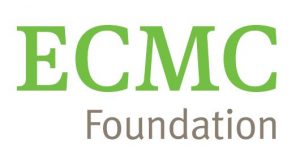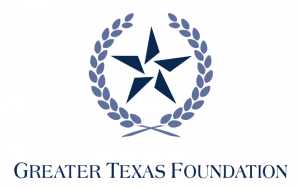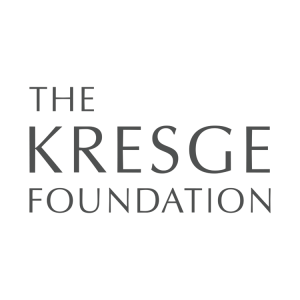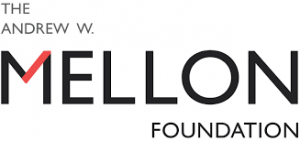Aspen Presidential Fellows – News Release
News Release
Follow us on Twitter: @AspenHigherEd, #PresFellow
Contact: Janae Hinson
202-736-2531│Janae.Hinson@aspeninst.org
Contact: Janae Hinson
202-736-2531│Janae.Hinson@aspeninst.org
ASPEN INSTITUTE NAMES PRESIDENTIAL FELLOWS FOR COMMUNITY COLLEGE EXCELLENCE
40 Exceptional Leaders Tapped to Participate in Highly Selective Program Amid Looming Shortage of Community College Presidents
Washington, D.C., April 12, 2019 – The Aspen Institute’s College Excellence Program today announced the 2019-2020 class of the Aspen Presidential Fellowship for Community College Excellence, a leadership program aimed at preparing the next generation of community college presidents to transform institutions to achieve higher and more equitable levels of student success, both in college and in the labor market.
The select group of 40 Aspen Presidential Fellows will embark on a 10-month fellowship beginning in July 2019. Delivered in collaboration with the Stanford Educational Leadership Initiative, the fellows will work with mentors – current and former community college presidents – who have achieved exceptional outcomes for students throughout their careers. Fellows will also learn from national experts about ways to harness data to assess student success outcomes, strategies for internal change leadership, and how to create strong external partnerships with K-12 schools, four-year colleges, and employers.
“Evidence shows that substantial improvements in student success are achieved only when presidents have the commitment and skill needed to lead change within their institutions and through partnerships in the community,” said Josh Wyner, executive director of the Aspen Institute’s College Excellence Program. “These fellows have been chosen because they embody that commitment and, we believe, will build their skills even further to become transformational presidents.”
The Aspen Presidential Fellowship responds to a specific and growing need for a new generation of leaders who are well-equipped to meet the challenges of the future. Nationally, nearly 80 percent of community college presidents plan to retire in the next decade. The pathway to replace them has traditionally excluded women and people of color. Currently, 64 percent of sitting community college presidents are male, and 71 percent are white. The incoming class of Aspen Presidential Fellows is 65 percent female and non-binary, 43 percent are people of color, and their institutions vary widely in size and location.
With the average community college enrolling approximately 14,000 students, each fellow who becomes a president has an opportunity to improve outcomes for hundreds of thousands of students over his or her career. To date, 33 Aspen Presidential Fellows are now sitting community college presidents at institutions that collectively serve more than 450,000 students nationwide.
The select group of 40 Aspen Presidential Fellows will embark on a 10-month fellowship beginning in July 2019. Delivered in collaboration with the Stanford Educational Leadership Initiative, the fellows will work with mentors – current and former community college presidents – who have achieved exceptional outcomes for students throughout their careers. Fellows will also learn from national experts about ways to harness data to assess student success outcomes, strategies for internal change leadership, and how to create strong external partnerships with K-12 schools, four-year colleges, and employers.
“Evidence shows that substantial improvements in student success are achieved only when presidents have the commitment and skill needed to lead change within their institutions and through partnerships in the community,” said Josh Wyner, executive director of the Aspen Institute’s College Excellence Program. “These fellows have been chosen because they embody that commitment and, we believe, will build their skills even further to become transformational presidents.”
The Aspen Presidential Fellowship responds to a specific and growing need for a new generation of leaders who are well-equipped to meet the challenges of the future. Nationally, nearly 80 percent of community college presidents plan to retire in the next decade. The pathway to replace them has traditionally excluded women and people of color. Currently, 64 percent of sitting community college presidents are male, and 71 percent are white. The incoming class of Aspen Presidential Fellows is 65 percent female and non-binary, 43 percent are people of color, and their institutions vary widely in size and location.
With the average community college enrolling approximately 14,000 students, each fellow who becomes a president has an opportunity to improve outcomes for hundreds of thousands of students over his or her career. To date, 33 Aspen Presidential Fellows are now sitting community college presidents at institutions that collectively serve more than 450,000 students nationwide.
The 2019-2020 Aspen Presidential Fellows and their Institutions
• Joshua Baker, Pikes Peak Community College (CO)
• Kimberly Britt, J. Sargeant Reynolds Community College (VA)
• Rebecca Butler, Columbus State Community College (OH)
• Matthew Campbell, Pierce College Puyallup (WA)
• William Cathcart, Ivy Tech Community College (IN)
• Pascale Charlot, Miami Dade College (FL)
• Aliesha Crowe, Chippewa Valley Technical College (WI)
• Galen DeHay, Tri-County Technical College (SC)
• Marielena DeSanctis, Broward College (FL)
• Gregory DeSantis, Connecticut State Colleges and Universities (CT)
• Lisa Dougherty, Hudson County Community College (NJ)
• John Enamait, Stanly Community College (NC)
• Theresa Felder, Clark State Community College (OH)
• Daisy Gonzales, California Community Colleges Chancellor’s Office (CA)
• Darrin Hartness, Davidson County Community College (NC)
• Jennifer Cullinane Hege, Texas Higher Education Coordinating Board (TX)
• William Heineman, Northern Essex Community College (MA)
• Dorado Kinney, Austin Community College (TX)
• Kenneth Lawson, Skagit Valley College (WA)
• Julie Leidig, Northern Virginia Community College (VA)
• Eric Leshinskie, Paradise Valley Community College (AZ)
• S. Sean Madison, Tarrant County College - Trinity River (TX)
• Lisa Matye Edwards, Arapahoe Community College (CO)
• Claudia Mercado, William Rainey Harper College (IL)
• Rosie Rimando-Chareunsap, South Seattle College (WA)
• Reynaldo Rivera, Estrella Mountain Community College (AZ)
• Ian Roark, Pima Community College (AZ)
• Irene Robles-Lopez, Pima Community College (AZ)
• Sheri Rowland, Tallahassee Community College (FL)
• Gaye Lynn Scott, Austin Community College (TX)
• John Selmon, Muskegon Community College (MI)
• Deana Sheppard, Lone Star College – CyFair (TX)
• Scott Stallman, Lone Star College – Tomball (TX)
• Jennifer Taylor-Mendoza, Skyline College (CA)
• Kathryn Thirolf, Jackson College (MI)
• David Thomas, Community College of Philadelphia (PA)
• Veronique Tran, Lee College (TX)
• Jane Vangsness Frisch, North Dakota State College of Science (ND)
• Denise Whisenhunt, San Diego City College (CA)
• Yolanda Wilson, York Technical College (SC)
• Kimberly Britt, J. Sargeant Reynolds Community College (VA)
• Rebecca Butler, Columbus State Community College (OH)
• Matthew Campbell, Pierce College Puyallup (WA)
• William Cathcart, Ivy Tech Community College (IN)
• Pascale Charlot, Miami Dade College (FL)
• Aliesha Crowe, Chippewa Valley Technical College (WI)
• Galen DeHay, Tri-County Technical College (SC)
• Marielena DeSanctis, Broward College (FL)
• Gregory DeSantis, Connecticut State Colleges and Universities (CT)
• Lisa Dougherty, Hudson County Community College (NJ)
• John Enamait, Stanly Community College (NC)
• Theresa Felder, Clark State Community College (OH)
• Daisy Gonzales, California Community Colleges Chancellor’s Office (CA)
• Darrin Hartness, Davidson County Community College (NC)
• Jennifer Cullinane Hege, Texas Higher Education Coordinating Board (TX)
• William Heineman, Northern Essex Community College (MA)
• Dorado Kinney, Austin Community College (TX)
• Kenneth Lawson, Skagit Valley College (WA)
• Julie Leidig, Northern Virginia Community College (VA)
• Eric Leshinskie, Paradise Valley Community College (AZ)
• S. Sean Madison, Tarrant County College - Trinity River (TX)
• Lisa Matye Edwards, Arapahoe Community College (CO)
• Claudia Mercado, William Rainey Harper College (IL)
• Rosie Rimando-Chareunsap, South Seattle College (WA)
• Reynaldo Rivera, Estrella Mountain Community College (AZ)
• Ian Roark, Pima Community College (AZ)
• Irene Robles-Lopez, Pima Community College (AZ)
• Sheri Rowland, Tallahassee Community College (FL)
• Gaye Lynn Scott, Austin Community College (TX)
• John Selmon, Muskegon Community College (MI)
• Deana Sheppard, Lone Star College – CyFair (TX)
• Scott Stallman, Lone Star College – Tomball (TX)
• Jennifer Taylor-Mendoza, Skyline College (CA)
• Kathryn Thirolf, Jackson College (MI)
• David Thomas, Community College of Philadelphia (PA)
• Veronique Tran, Lee College (TX)
• Jane Vangsness Frisch, North Dakota State College of Science (ND)
• Denise Whisenhunt, San Diego City College (CA)
• Yolanda Wilson, York Technical College (SC)
For bios and photos of all 40 extraordinary leaders, visit: http://as.pn/1ky
The Aspen Presidential Fellowship for Community College Excellence is supported by the Charles and Lynn Schusterman Family Foundation, College Futures Foundation, Greater Texas Foundation, JP Morgan Chase Foundation, Joyce Foundation, Kresge Foundation, and Andrew W. Mellon Foundation.
###
The Aspen College Excellence Program aims to advance higher education practices and leadership strategies that significantly improve student outcomes. Through the Aspen Prize for Community College Excellence, the Aspen Presidential Fellowship for Community College Excellence, and other initiatives, the College Excellence Program works to improve colleges’ understanding and capacity to teach and graduate students, especially the growing population of low-income students and students of color on American campuses. For more information, visit highered.aspeninstitute.org.
Stanford Educational Leadership Initiative (SELI) strives to help education leaders further develop their ability to transform education systems and drive meaningful change. SELI programs bring together the strengths of Stanford Graduate School of Education and Stanford Graduate School of Business, as well as additional Stanford faculty and resources, to offer multidimensional and immediately impactful professional development programming for practicing leaders in preK-12, higher education, and policy. By fostering collaboration and building relationships between existing colleagues and among new peers, SELI programs create networks supporting participants’ continued learning and organizational improvement. For more information, visit https://seli.stanford.edu/.
The Aspen Institute is an educational and policy studies organization based in Washington, DC. Its mission is to foster leadership based on enduring values and to provide a nonpartisan venue for dealing with critical issues. The Institute is based in Washington, DC; Aspen, Colorado; and on the Wye River on Maryland’s Eastern Shore. It also has offices in New York City and an international network of partners. For more information, visit www.aspeninstitute.org.
Stanford Educational Leadership Initiative (SELI) strives to help education leaders further develop their ability to transform education systems and drive meaningful change. SELI programs bring together the strengths of Stanford Graduate School of Education and Stanford Graduate School of Business, as well as additional Stanford faculty and resources, to offer multidimensional and immediately impactful professional development programming for practicing leaders in preK-12, higher education, and policy. By fostering collaboration and building relationships between existing colleagues and among new peers, SELI programs create networks supporting participants’ continued learning and organizational improvement. For more information, visit https://seli.stanford.edu/.
The Aspen Institute is an educational and policy studies organization based in Washington, DC. Its mission is to foster leadership based on enduring values and to provide a nonpartisan venue for dealing with critical issues. The Institute is based in Washington, DC; Aspen, Colorado; and on the Wye River on Maryland’s Eastern Shore. It also has offices in New York City and an international network of partners. For more information, visit www.aspeninstitute.org.
The Aspen Institute recognizes the generous support for the Aspen Presidential Fellowship for Community College Excellence from:







Contact us for more information.
Monica Clark, Senior Program Manager